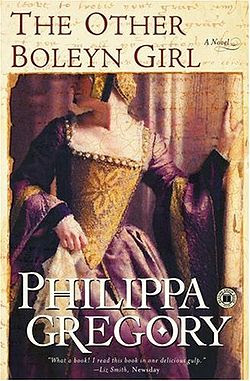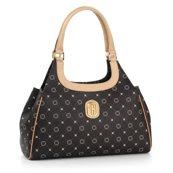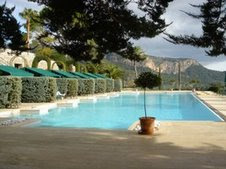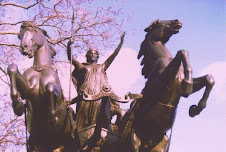 The Other Boleyn Girl
The Other Boleyn Girlby
Philippa Gregory
In reading this book and watching the ensuing motion picture, I am struck by the timelessness of these selfish, self-absorbed personalities and their politics, taking advantage of others, the trickery and jockeying for favored positions. And yet, the human persona still hasn’t evolved past these traits of the 16th century royal Tudor court...betrayal, intrigues and romantic drama. Their courtiers have become our politicians, lobbyists and other assorted "rear end" kissers who would further their careers at everyone’s expense.
Aristocrat Mary Boleyn became the pawn in her family’s quest to be the royal favorites and, consequently, the perks and higher positions awarded by the king became the overwhelming goal. Titles, wealth, land, castles were routinely handed out but it was the power that was coveted.
Perhaps one could argue that Henry’s upbringing and education were of a second son and not the heir apparent and future king. Had Arthur (the first son and heir of Henry VII) lived, Henry VIII’s immature, paranoid and hypochondriac nature would not have had such a historical impact. Henry had the usual royal preoccupation with producing viable heirs and the constant worry of being usurped by one with too royal blood in their veins. The Duke of Buckingham, Mary Boleyn’s uncle, was a good example of offending the king because of his royal bloodline. Depending on the king’s interpretation, having royal blood in your veins was considered "offensive" and punishable by death!
"There was a trail of extravagance, dishonesty and waste that followed the king around the country like slime behind a snail." "Henry VIII was first and foremost a spoiled child. When he was given a wonderful present, he loved the giver. He would love the giver right up to the moment that the present bored him, it broke or it failed to be what he wanted."
Mary Boleyn had a conscience, knowing right from wrong, but she also understood her duty to the family and that she had no voice in her destiny at that time in history. Her carefully orchestrated fate, by the hands of her uncle and parents, was to leave her husband, William Carey (who dies of the sweating sickness, become the royal mistress and bear two children by the king. In the family believing her a bit of a simpleton, she eventually is the one to survive, live a long, happy life and avoid the feel of the axe on her neck as is the fate of her sister Anne, her brother George and other unlucky individuals.
She recognized the foolish nature of Henry and the superior and innate royal nature of the Queen, Catherine of Aragon. "To love this man who was more foolish, more selfish and less of a prince than she was a princess."
Mary’s always competitive and ambitious sister, Anne, set her sites on Henry VIII as the prize. Anne utilizes her courtier skills acquired in the royal French household to pursue the king and become queen herself. She tells Mary, "I was born to be your rival and you mine. We’re sisters, aren’t we?" "Anne is ice and ambition and she would see you on the gallows before surrendering her ambition." There comes into play that age old dance between sisters where there is really room for only one girl. In this case, only one Boleyn girl and you get the feeling that the fight could be to the death.
It is interesting to note that when the Queen, Catherine of Aragon, is cast aside to make way for Henry to marry Anne Boleyn, the grand orchestrator of all this, Anne’s (and Mary’s) uncle (the Duke of Suffolk) no longer finds her ambition a virtue. As Mary succinctly states upon Anne’s coronation, "When Anne was enthroned, the Duke of Suffolk looked as if he was chewing on lemons, his smile was so bitter. My uncle was torn between joy at the wealth and prestige for his niece (and the family) and his increasing hatred of her arrogance."
Mary Boleyn never desired to participate in the court trappings and royal intrigues that involved and so intrigued her family. Because of this, she was always thought of as something of a dullard, a rather base simpleton harboring no ambition for the family. In the end, Mary Boleyn keeps her head and leaves court to lead an uncomplicated but fulfilling life in the country with a new husband and children. Mary wins!
I have read most of Philippa Gregory works and she always captures the historical essence while presenting it in a thoroughly entertaining genre. The making of "The Other Boleyn Girl" movie brought to light the little known life of Mary Boleyn who, historically, has been overshadowed by her sister, Anne. It also brought history, in an entertaining format, to many who would not normally be exposed to, or care, about the Tudor period. Kudos!
Check out the movie trailer below and enjoy!










































No comments:
Post a Comment